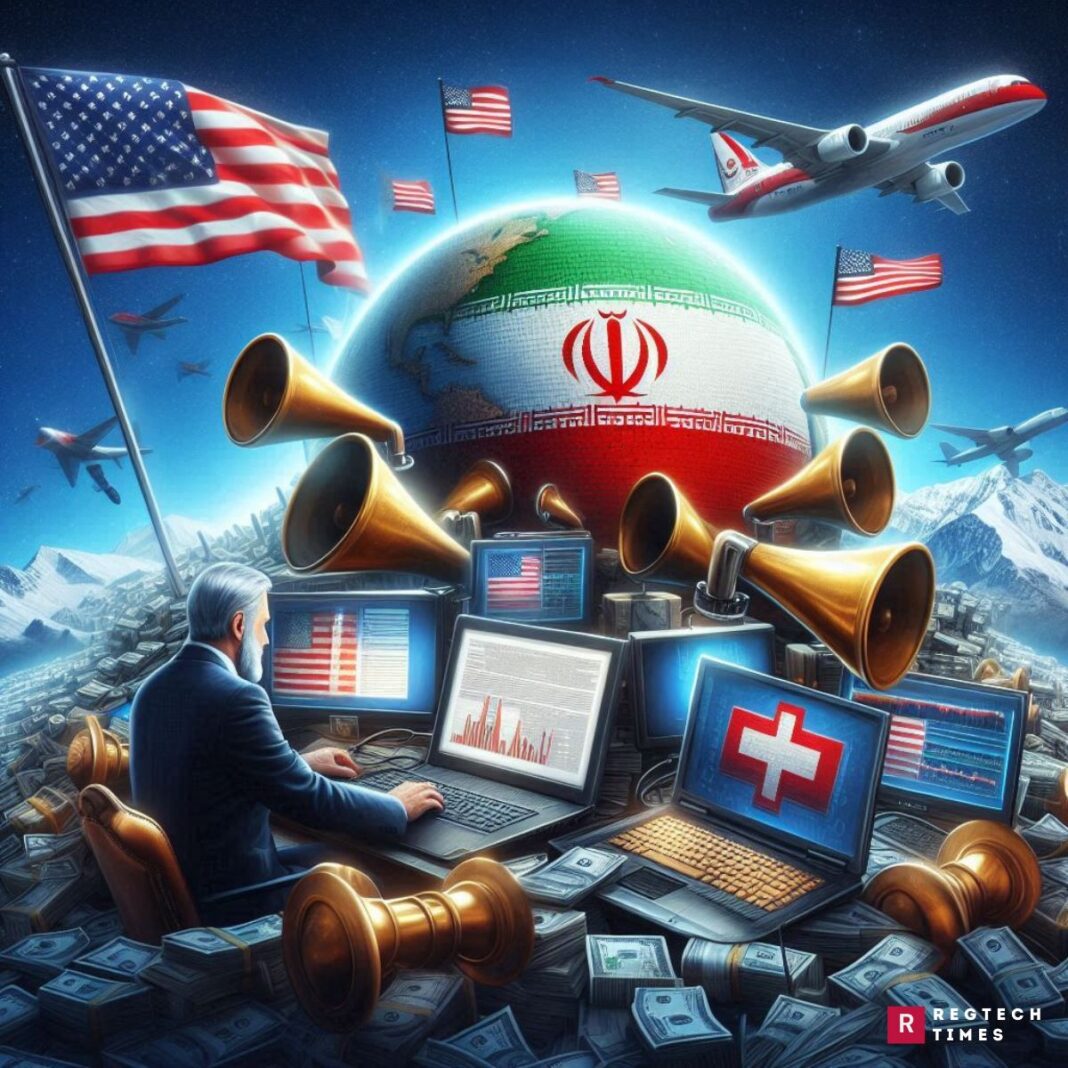Tensions in the Middle East rapidly increased after Iran attacked Israel with drones and missiles, a fresh and dangerous development in the region’s geopolitics. This incident, which took place over the weekend, was a response to one that was carried out earlier this month at an Iranian embassy in Damascus, Syria, targeting members of the Islamic Revolutionary Guard Corps. The way of contact between the United States and Iran, which is through Swiss diplomatic channels, is noteworthy in this intricate situation. This approach is frequently used because there are no direct diplomatic connections between the two countries.
Even while the attack went on, Iran informed the United States through these Swiss lines that their strike was complete. This information was provided by a top source in the U.S. government, who said that the attack was ongoing even though Iran claimed it was finished. This unique correspondence highlights the complex and vital role Switzerland plays in promoting communication between nations with tense ties.
Historically, the Swiss channels have been an essential conduit for these kinds of indirect interactions, guaranteeing that some discourse survives even in the face of serious diplomatic breakdowns. This incident illustrates the delicate nature of international diplomacy in situations where conventional routes are non-operational. It is possible that the Swiss Embassy in Tehran transmitted signals between Washington and Tehran.
According to reports, Iran’s provocative action was a direct reaction to the deadly bombing on Damascus, which marked a sharp rise in tensions in the region. A tribute to Israel’s sophisticated missile defense systems and the strategic military cooperation between the U.S. and Israel, the U.S. assisted Israel in intercepting 99 percent of the incoming bombs. Contrary to certain assertions, the U.S. government said, Iran had not given any notice of the strike, suggesting a desire to cause damage and maybe deaths.
U.S. President Joe Biden swiftly reiterated America’s unwavering commitment to Israel’s security in the aftermath. He praised Israel’s defensive capabilities for successfully reducing the damage of the strike. President Biden and other U.S. officials stressed the need to prevent a wider war with Iran despite the unstable circumstances, recommending a careful response to a potentially combustible regional scenario.
The political consequences within the United States further complicate the situation. In a comment on CNN’s “State of the Union,” Senator John Fetterman attacked the idea of providing Israel with conditional assistance, stating that the United States should unquestioningly stand by its partner. His remarks are indicative of a larger attitude in American politics, where support for Israel is a major concern that frequently has an impact on debates over legislation and foreign policy.
Further, Fetterman emphasized the performative nature of Iran’s activities, implying that the attack served primarily as a statement in the wake of the death of a high-ranking official in the Damascus bombing. His comments confirm the belief that, despite Iran’s efforts to establish itself in the area, it is unlikely to wish to engage Israel or the US militarily directly, preferring to do it through proxy troops.
The Israeli cabinet met in order to discuss the country’s reaction, which is still crucial in deciding how this crisis would play out in the future while the whole world watches. The international world is still on edge because they know that the decisions made in the next few days may either lead to a de-escalation of the situation or bring the area closer to more bloodshed.
This incident serves as a sobering reminder of how precarious the peace is in the Middle East, where geopolitical interests, religious disagreements, and old grudges regularly intersect. It also highlights how important international diplomacy is in handling these kinds of situations, since nations like Switzerland may mediate disputes that have far-reaching effects on regional and even global stability. The international community has to be involved and prepared to back initiatives aimed at stabilizing the area, preventing more casualties and conflict escalation, as the situation develops.



